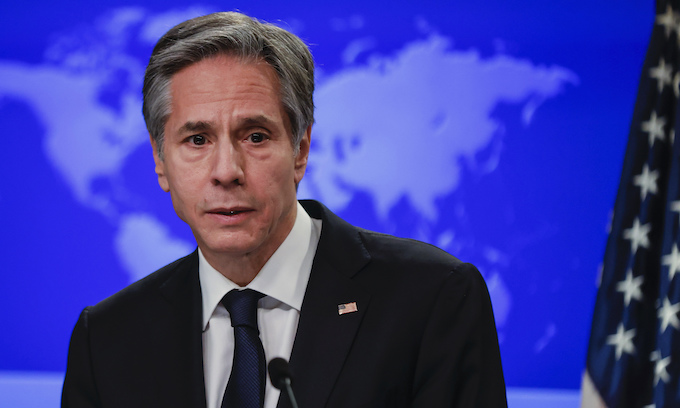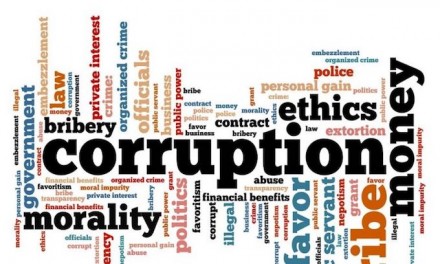Thirteen Republicans are seeking answers from the Biden administration over issuing a waiver that permits Iraq to purchase electricity from Iran.
Secretary of State Antony Blinken extended the waiver for another 120 days on March 12. Critics say the amount of money Iran receives—$10 billion—would be used for the regime’s malign activities, including its leading support for terrorism.
It was the 22nd such waiver issued by the United States. The Biden administration has repeatedly said Iran does not have access to the funds and that the funds can be used by Tehran only for humanitarian and other non-sanctionable purposes.
In an April 3 letter to Mr. Blinken and Treasury Secretary Janet Yellen, the senators lamented that “the waiver makes restricted Iranian funds more accessible to the Ayatollah’s regime, at a time when Iranian-backed aggression in the region is at a peak” and that “the administration appears to be disregarding congressional intent that any payments made to Iran remain severely restricted.”
The group called the waiver “unfathomable” amid Iranian-backed groups, such as the Houthis in Yemen, attacking U.S. servicemembers.
The waiver was also issued despite Israel’s war with the terrorist group Hamas, which is backed by Iran.
“If we want to actually restore deterrence in the region, those funds should be placed further out of Iran’s reach, not closer,” the senators wrote.
The senators noted that when Baghdad purchases electricity from Tehran, it must be done with the Iraqi dinar, not the Iranian rial. The waivers, they pointed out, have allowed Iran to denominate the payments in euros.
Because the euro is stronger than the dinar, Iran can claim that it has more funding than it would in dinars and, therefore, increase its malign activities.
As foreign policy expert and human rights lawyer Irina Tsukerman told The Epoch Times, the denomination makes it “more likely” that Tehran can “access international markets” given the euro’s legitimacy.
Hence, she said, Iran “can use it to gain access where it would otherwise be excluded.”
“The United States should be restricting Iran’s access to currency abroad,” the group of Republicans wrote to Mr. Blinken and Ms. Yellen. “Instead, your administration is expanding it, all while continuing to share limited information on a strategy to restore deterrence in the Middle East with Congress or the American people.”
The senators asked Mr. Blinken and Ms. Yellen to answer questions, including “how the transfer of restricted Iranian funds out of Iraq and into accounts in Oman, France, and Italy is in the national security interest of the United States, especially in light of recent attacks by Iranian proxy forces that have killed American servicemembers and continue to target Israel, a key U.S. ally.”
They also asked how many banks in France, Oman, and Italy “received restricted Iranian funds” and “how much petroleum or petroleum products are being imported from Iran” to those countries.
The senators also asked the secretaries to “explain the ‘exceptional circumstances’ that did not allow for a significant reduction” in those countries’ “purchase of Iranian petroleum or petroleum products.”
They also asked “how much petroleum or petroleum products are being imported from” Italy, France, and Oman “prior to the waivers issued on July 17, 2023, November 13, 2023, and March 12, 2024.”
The senators inquired “why the Trade Bank of Iraq was permitted to engage in financial transactions denominated in euro with the Central Bank of Iran,” and they asked Mr. Blinken and Ms. Yellen to “identify the total amount of restricted Iranian funds in accounts at the Trade Bank of Iraq that is denominated in euro and the total amount that is denominated in Iraqi dinar.”
The signees of the letter were Sens. Tim Scott (R-S.C.), Chuck Grassley (R-Iowa), Tom Cotton (R-Ark.), Mike Crapo (R-Idaho), Kevin Cramer (R-N.D.), Pete Ricketts (R-Neb.), Ted Budd (R-N.C.), Ted Cruz (R-Texas), Marco Rubio (R-Fla.), Rick Scott (R-Fla.), Katie Britt (R-Ala.), Todd Young (R-Ind.), and John Cornyn (R-Texas).
Other Critics
Critics have denounced the Biden administration for issuing the waiver.
Ms. Tsukerman remarked that “because U.S. pressure is to de-dollarize banks rather than to limit Iran’s access, this is hurting [the] U.S., weakening influence on Baghdad, and making it more difficult to pay [nongovernmental organizations].”
She also said Iran, China, and Russia win, as the latter two are also “expanding influence inside Iraq.”
“They just can’t quit appeasing Iran. It’s all they know,” Richard Goldberg, who led Iran policy in the National Security Council during the Trump administration, told The Epoch Times in November 2023.
“It’s somewhere between ideology and pathology. There’s no excuse for giving Iran access to a single penny after October 7, and 55 attacks on U.S. forces since October 17.”
At the end of the day, according to Ms. Tsukerman, the United States “should deny [the] waiver, and instead work with Gulf states to get more electricity into Iraq and help [its] economy become more independent from Iran, China, and Russia.”



















This treasonous Democrat Party and their corrupt Biden administration is in effect waging war against the U.S. my any means available.
“GOP Senators seek answers from Biden administration over Iran Sanctions”,,,,which can be answered with one question asked,,,,”How much Joe did you, Hunter and your Family financially benefit from the policy transactions” that are now still happening behind the scenes with a Winking, a Blinken and a Nod. Ten percent for “THE BIG GUY” of $10 billion is nothing to sneeze at, and just how did they get the money,,,by phony Bank Transactions through fake multiple Swiss banking accounts, or like Obama did when he sent the Mullahs 727 planeloads and pallets of cash whose percent laundered back probably allowed him to buy his current million dollar estates. The Clintons began the great money manipulating laundry monopolies disguised as Charities, where charity always begins at home. Hunt down ALL the filthy lucre money and return it to WE THE PEOPLE where it all belongs, but was used to finance Anti-American Iranian terrorist wars, paid for in innocent blood and human life force that defunds our military. Put them all in jail where the real criminals belong who always show that self-enrichment and self-pleasing, was the real reason for their treason.
They could demand all the answers they want. BUT THEY STILL LACK A SPINE TO do anything about it.
The photograph here of Stinkin Blinken pretty much visually sums up the Biden foreign policy picture. It says something like “please be nice to me”.